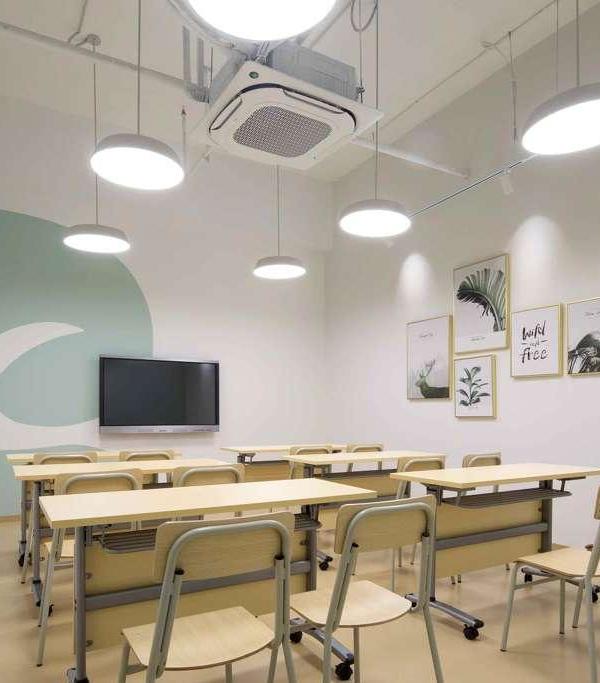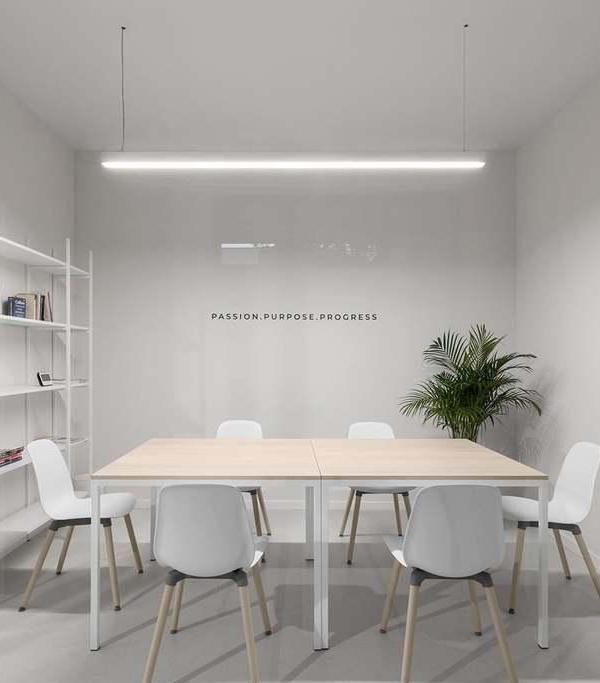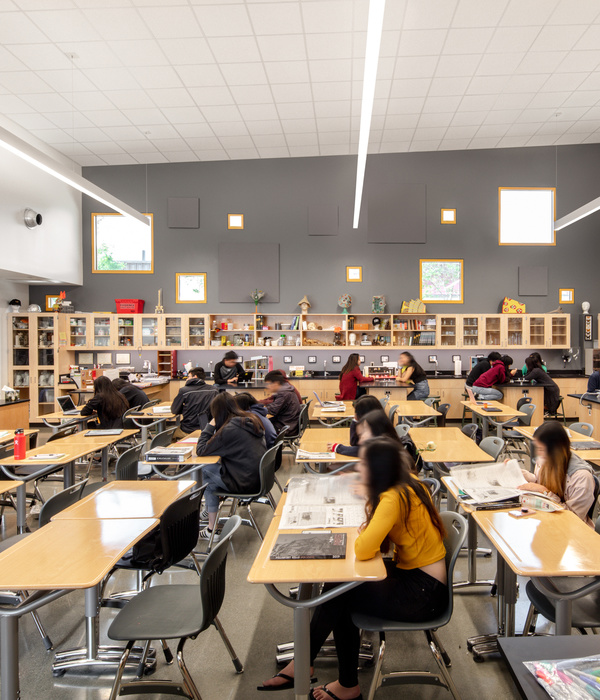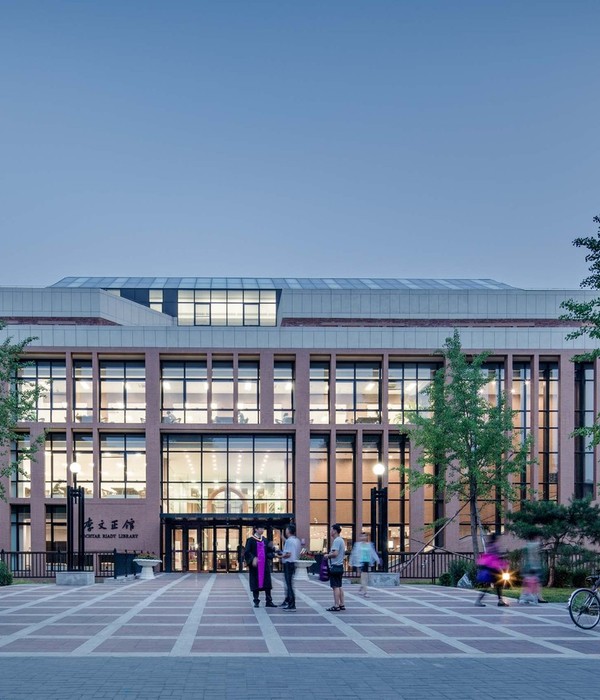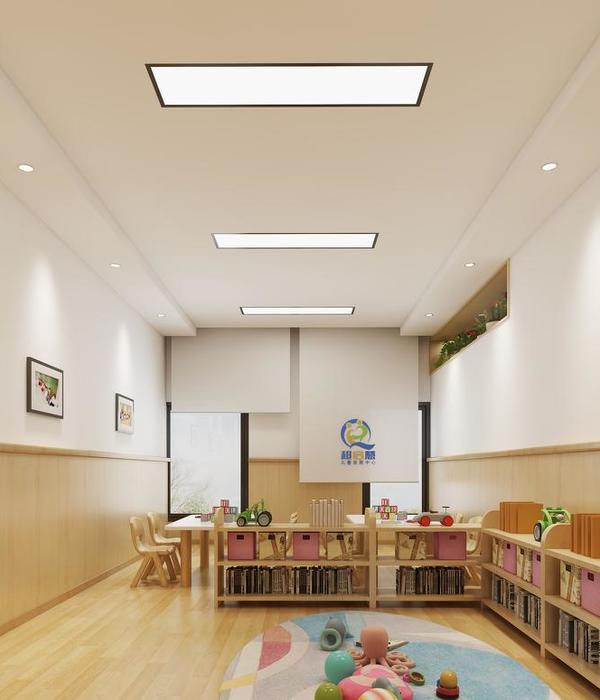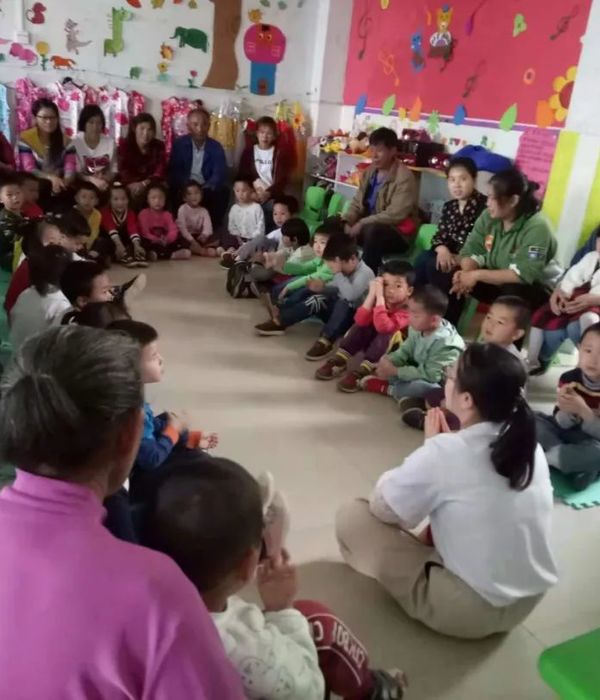纸鸢亭 | 轻盈飘逸的公共空间
- 项目名称:纸鸢亭
- 设计方:王梓童(同济大学建筑与城市规划学院)
- 主创:王梓童
- 项目地址:中国上海市徐汇区龙腾大道2350号,西岸穹顶艺术中心
- 建筑面积:85㎡
- 摄影版权:析幺,王梓童,张宇宙,王昕鑫,郭力娜,董晓,郭小溪,肖琦凡
- 设计指导:张婷
- 结构设计:iStructure
- 施工方:济木建筑科技工程(上海)有限公司
- 客户:上海西岸开发(集团) 有限公司
“纸鸢亭”位于上海徐汇滨江的西岸穹顶艺术中心广场。这一带原为上世纪二十年代的上海水泥厂,大穹顶及一侧的传送带,作为工业遗址被保留下来,并重新激活开发为当代艺术与公共活动的载体。随着穹顶艺术中心的各类活动不断更替发生,广场上会有潮汐一般人群在此游玩休憩,在上海高密度城市中形成了一片充满活力的滨江公共空间,给人以开阔、自由的场所感。同济大学建筑与城市规划学院院长李翔宁教授在此策划了“西岸-同济建造节”的活动,纸鸢亭是三个构筑物中的一个。
亭子外观,external view of the pavilion
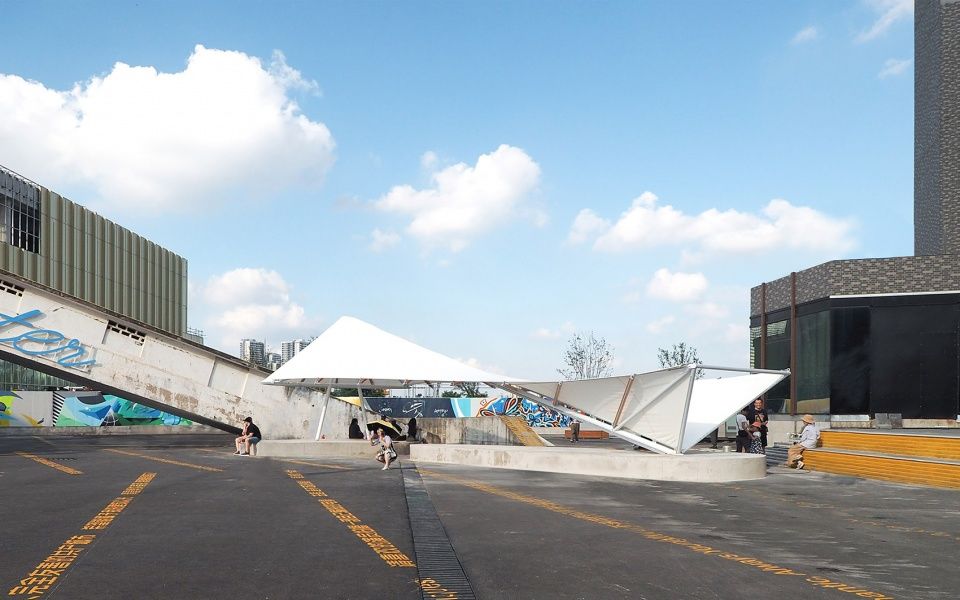
场所与概念
Places and Concept
设计之初,任务是设计广场周边的供人休憩的亭子,面积100㎡以下。体量限制的小亭子如何大而旷的场地中被识别,且人的身体介入后有丰富的空间感知,是设计最重要的命题。因而在同等面积前提下,拥有更大的迎接面的“长亭”成为了整个项目的出发点。
At the beginning of the design, the task was to design pavilions for people to rest around the square, with an area of less than 100 m². The most important proposition was how to identify the small pavilions in a large and open space and how to create a rich spatial perception with the intervention of the human body. Therefore, the “long volume of pavilion” with a larger surface for the same area became the starting point for the whole project.
▼亭子近景,closer view to the pavilion
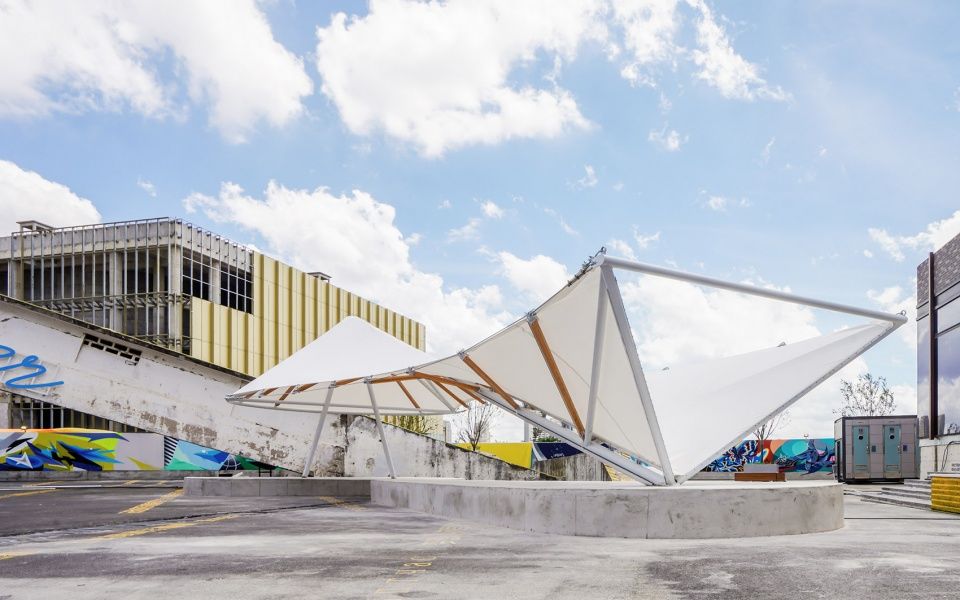
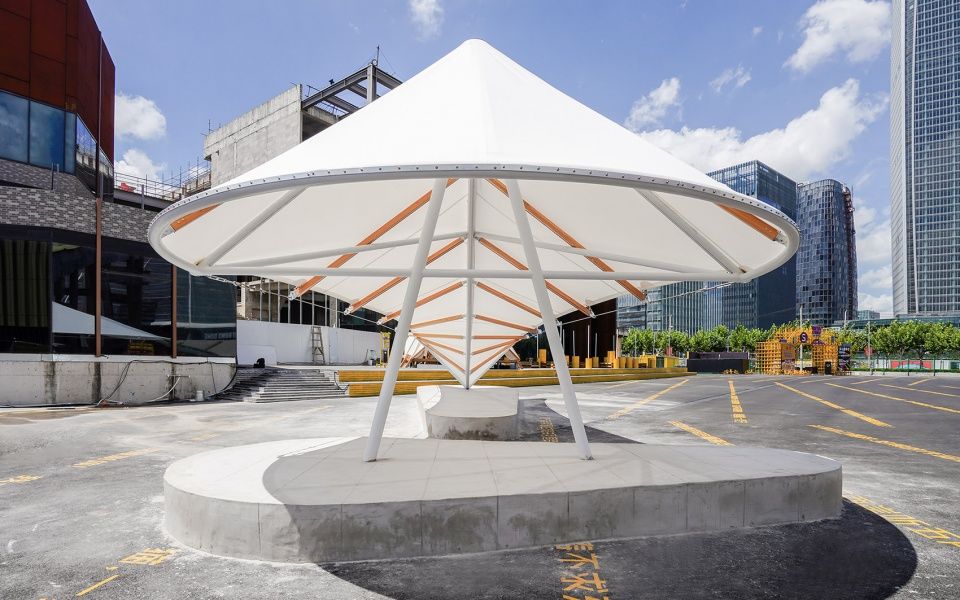
充分捕捉滨江场地的特性,设计采用了迎风起飞的风筝意向,塑造自由、轻盈的空间感知。线性的形态最大限度地提供延展界面,为自由停留、休憩、穿越等多样行为活动提供可能。纸鸢亭屋顶形态由直纹沿中轴翻折形成曲面,一端形成穹顶,一端形成一对落地的“翅膀”。尺度的变化和内外空间的连绵交织,在覆盖下加强了各种行为的身体感知。在夜晚,屋顶变成鱼骨形的发光体,如同悬浮的灯笼一般为场地提供照明。“纸鸢亭”步移景异的形态使其本身也成为城市中一道富有趣味的风景,激发人们的想象以及与之互动的自然愿望。
▼设计概念,design concept

▼一端落地形成“翅膀”,a pair of wing-shape on the one end
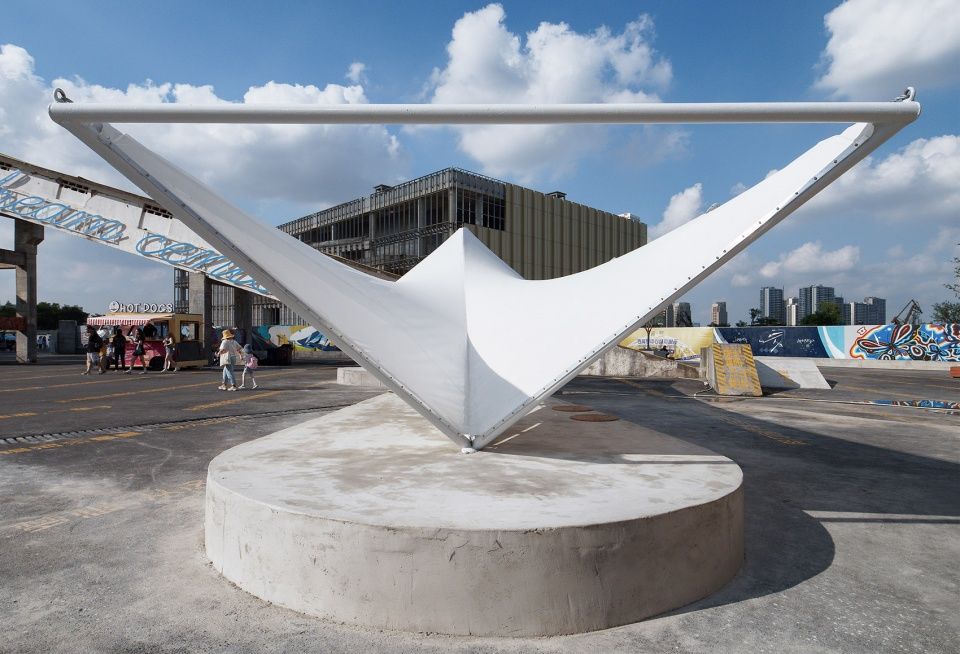
Capturing the characteristics of the riverfront site, the design adopts the intention of a kite flying in the wind to create a light perception. Its linear form maximizes the extension interface, providing the possibility for various behaviors such as staying, resting, and crossing freely. The roof of the kite pavilion is curved by folding the straight lines along the central axis, forming a dome on one end and a pair of wing-shape on the other. At night, the volume turns into a fish-bone-shaped luminous body, which illuminates the site like a suspended lantern. The “kite pavilion” becomes a playful urban landscape, stimulating people’s imagination and their natural desire to interact with it.
夜景,屋顶变成鱼骨形的发光体,night view, the volume turns into a fish-bone-shaped luminous body

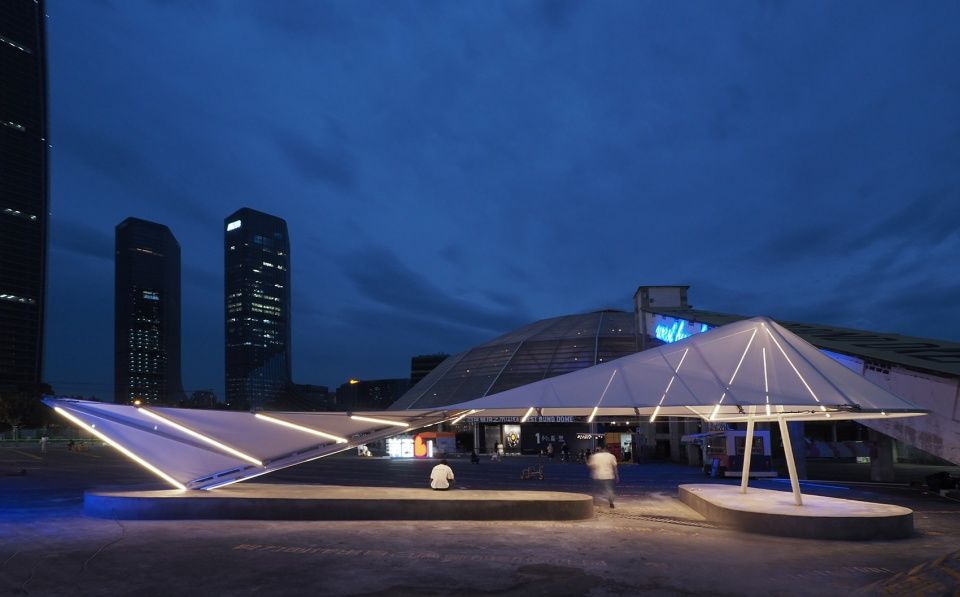
▼灯光下的活动空间,activity space illuminated by the roof
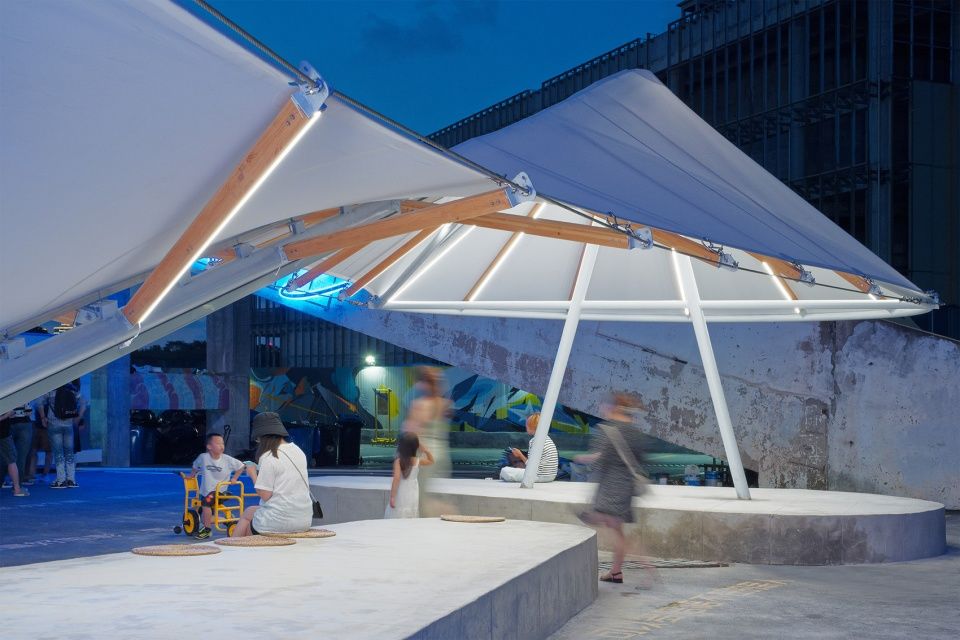
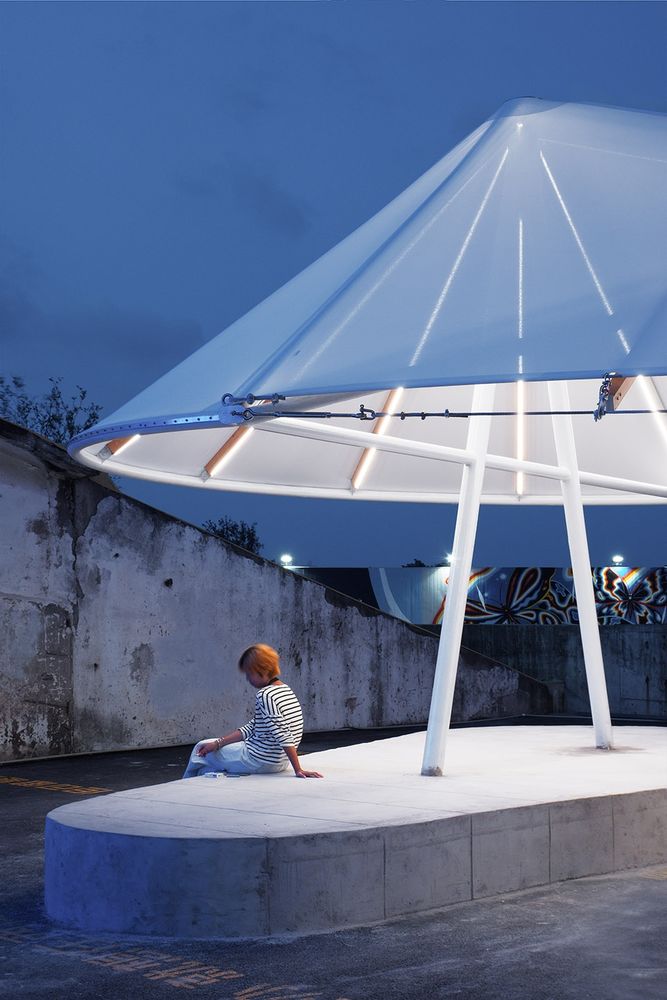
夜晚屋顶近景,closer view to the roof in the night
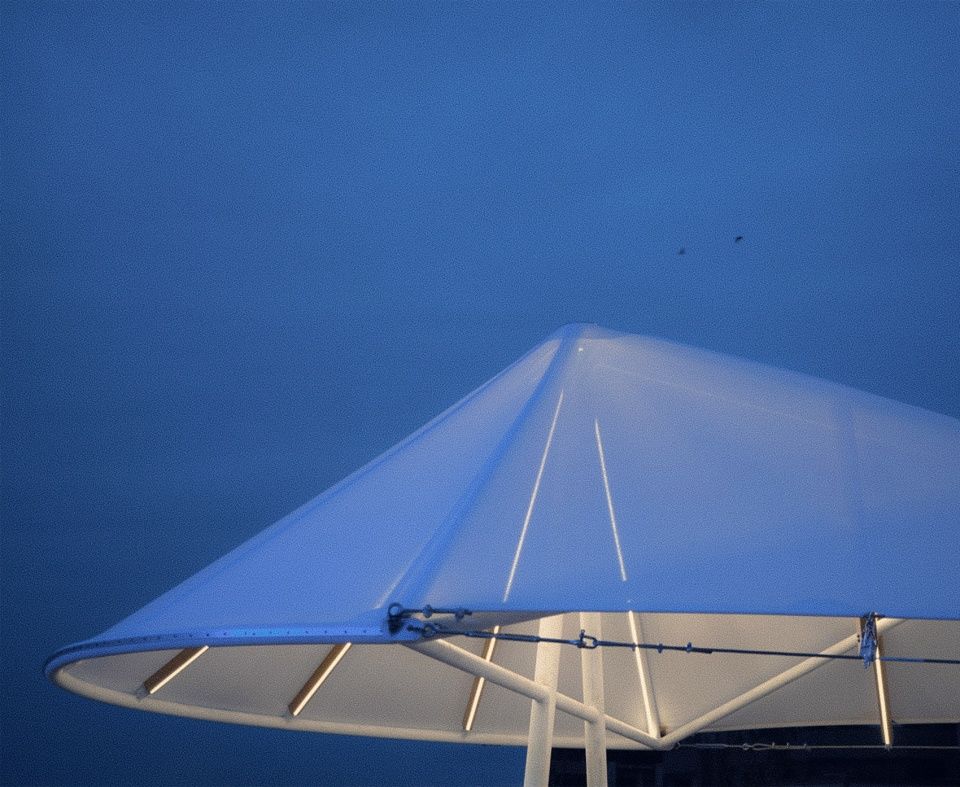
设计通过“正面性和对象感”的操作使得纸鸢亭与活动广场产生关联。西岸穹顶艺术中心广场四周被建筑和围墙包围,亭子坐落在其边缘意味着只有一个主要的面被大多数人所体验。因而将其长边面向广场,让人可以同时看到水平的檐口,以及上凸下凹两种内外关系的面。希望纸鸢亭成为场地上的一种易于识别的公共展品,吸引人前来自然的坐下。结合初步确认的体量关系,亭子最后落点选择在场地东北角,形体的另一条长边面对着建筑和围墙之间的空隙,两分的坐凳之间恰好留出广场中到场地边缘公共厕所的动线,人走进后可以通过坐凳和屋盖挤压出来的空间指向远方的天空,放大场地边缘上难得的“空与透”的感知。
The design relates the pavilion to the square through the operations of “Frontality and Objecthood”. The pavilion is located at the edge of the square formed by the industrial heritage, surrounded by buildings and walls, which means that only one main side is experienced by most people. The long side of the pavilion is thus oriented towards the square, allowing the horizontal eave to be seen as well as the convex and concave sides of the pavilion, both inside and outside. The design intended the kite pavilion to be an easily recognizable public exhibit on the site, inviting people to come and sit. The specific landing point of the pavilion was finally chosen in the northeast corner of the site, in the gap between the building and the fence. The seats of the pavilion are divided into two parts, leaving the circulation from the square to the public restroom. When people approach, they can see the distant sky through the space squeezed by the benches and the roof, which amplifies the rare perception of “emptiness and transparency” on the edge of the site.
▼亭子长边面向广场,the long side of the pavilion is oriented towards the square
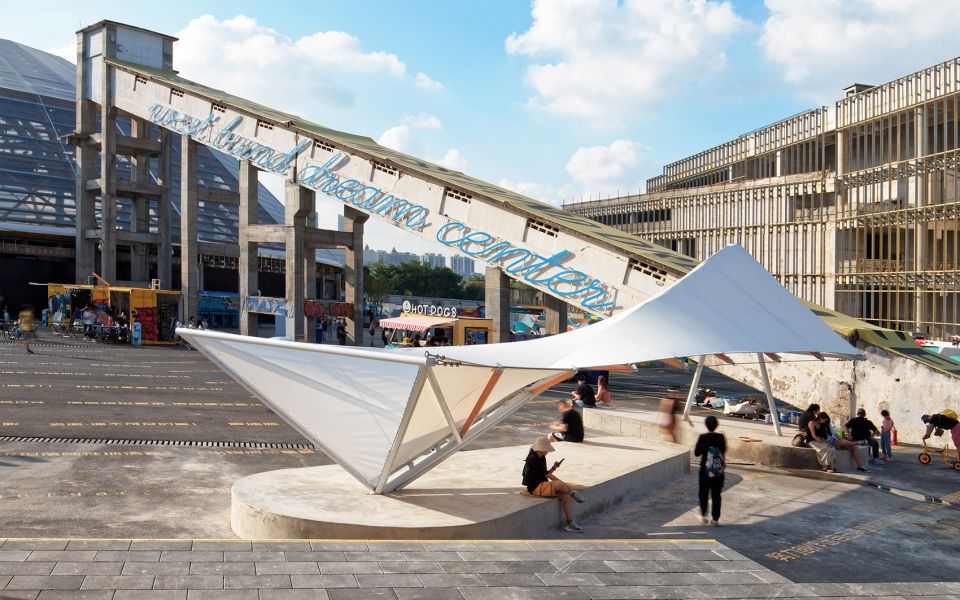
▼屋顶下的休息空间,covered seating space
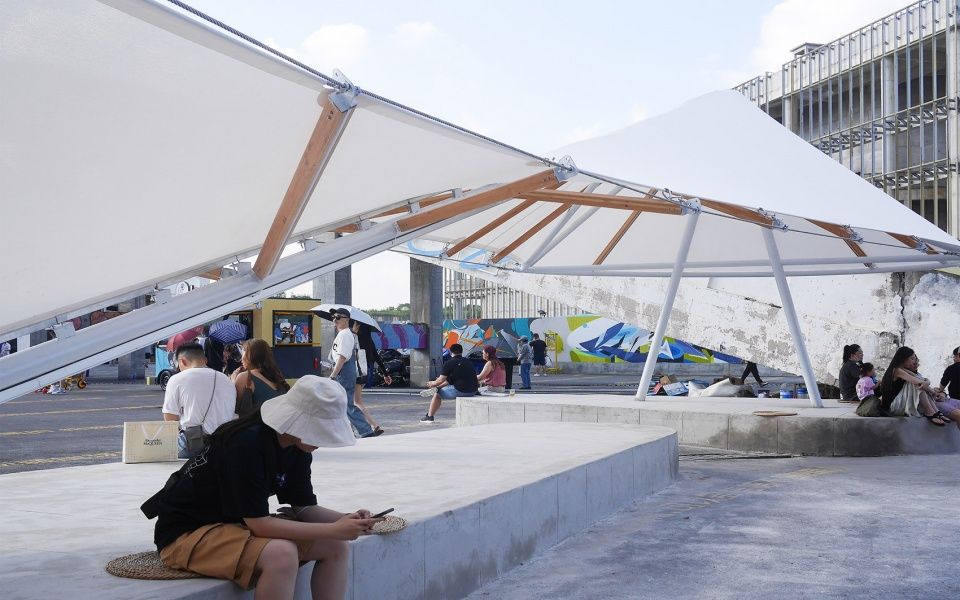
▼另一侧对着建筑和围墙的空隙,face the gap between the building and the fence on the other side
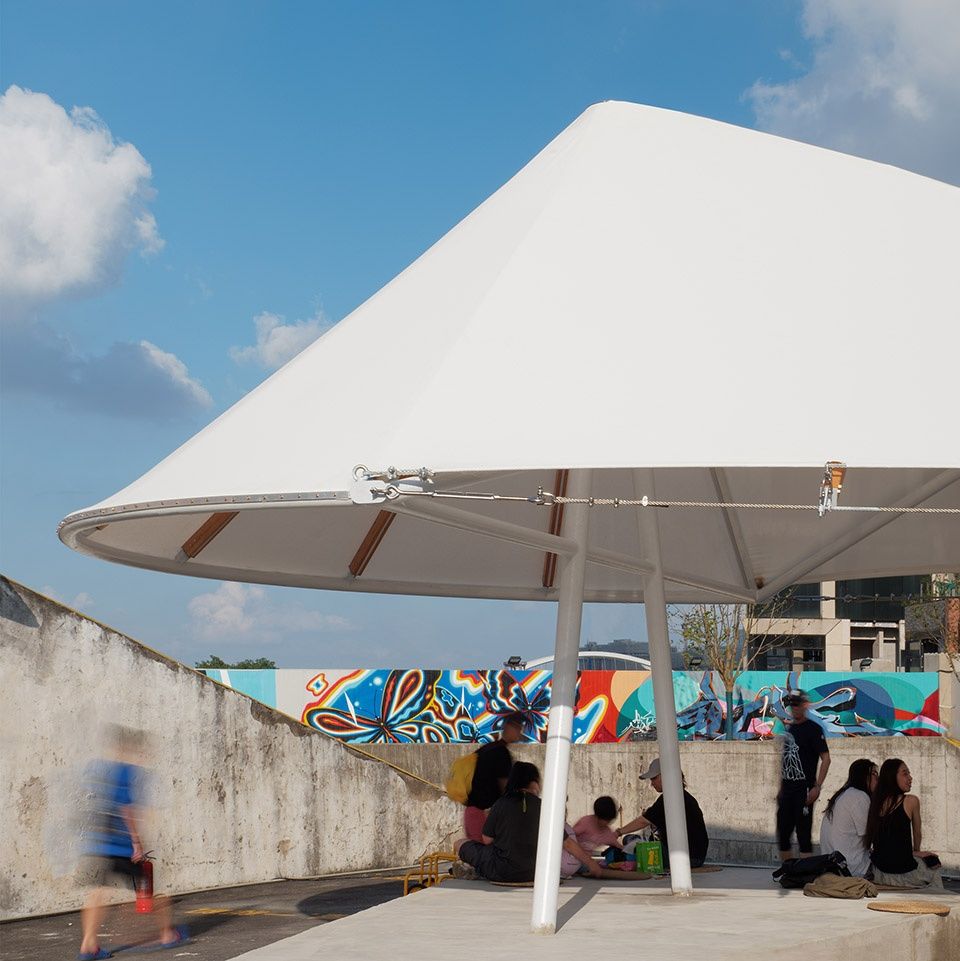
▼屋顶与坐凳形成的空间,space defined by roof and seatings
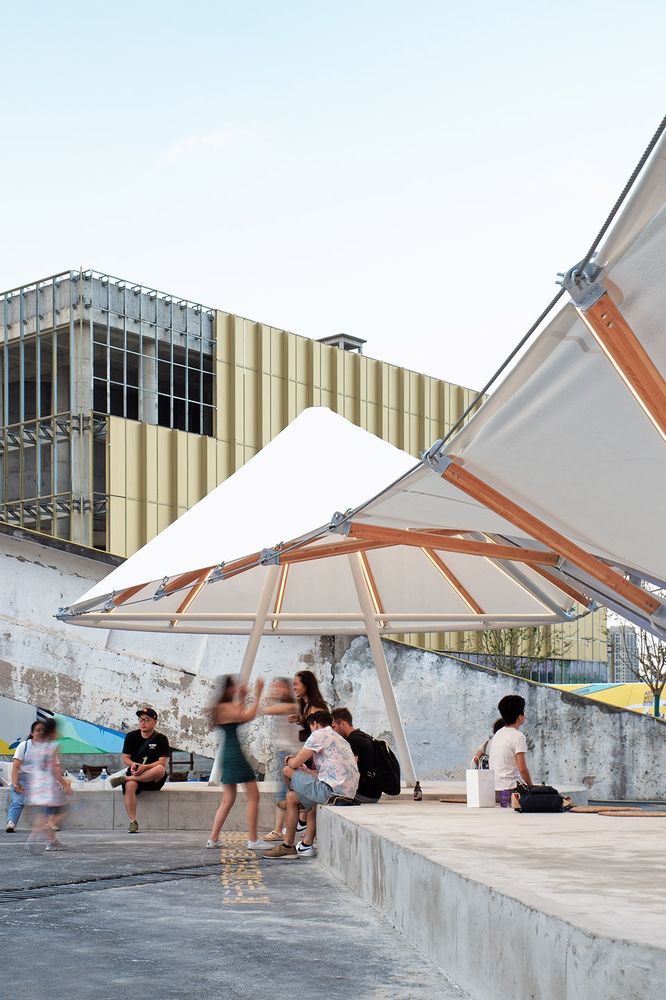
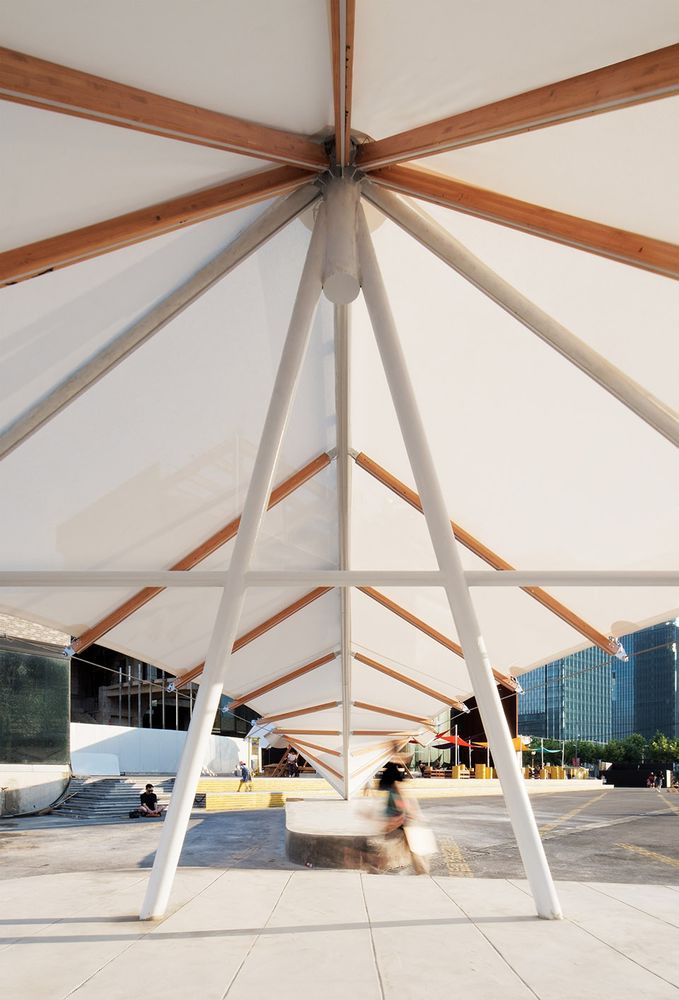
▼透过屋顶和坐凳看向远处的天空,view to the sky in the distance through the roof and the seatings
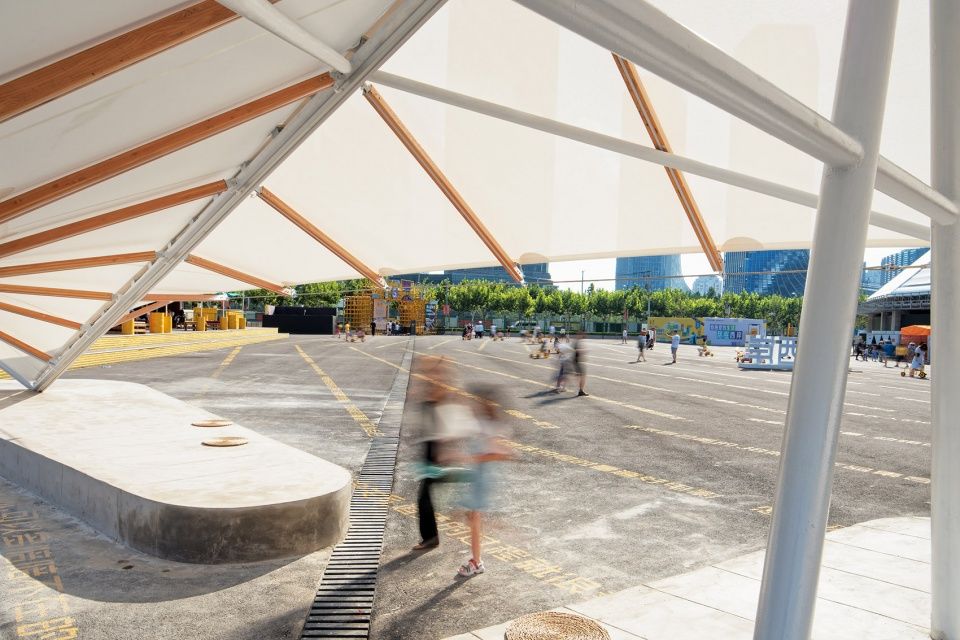
结构与建造
Structure and Construction
由外部关系和身体感知而形成的形态通过与结构的磨合得到技术性落实,钢、木、膜共同受力的混合结构实现了轻盈、简洁的整体。上部的屋顶由膜、边索和木撑杆构成,形成弹性的张拉体系以应对江边大风。中部人字撑和中轴斜撑是主要的支承结构,落点简化为三个。半圆锥悬挑和斜撑尾端的一榀三角桁架形成屋顶结构两端刚性的支撑,涂上白色漆消隐在屋顶之中。体量尾部以点接的方式落于坐凳之上,触发感知上不稳定的错觉。
▼结构分解轴测图,exploded axonometric of the structure
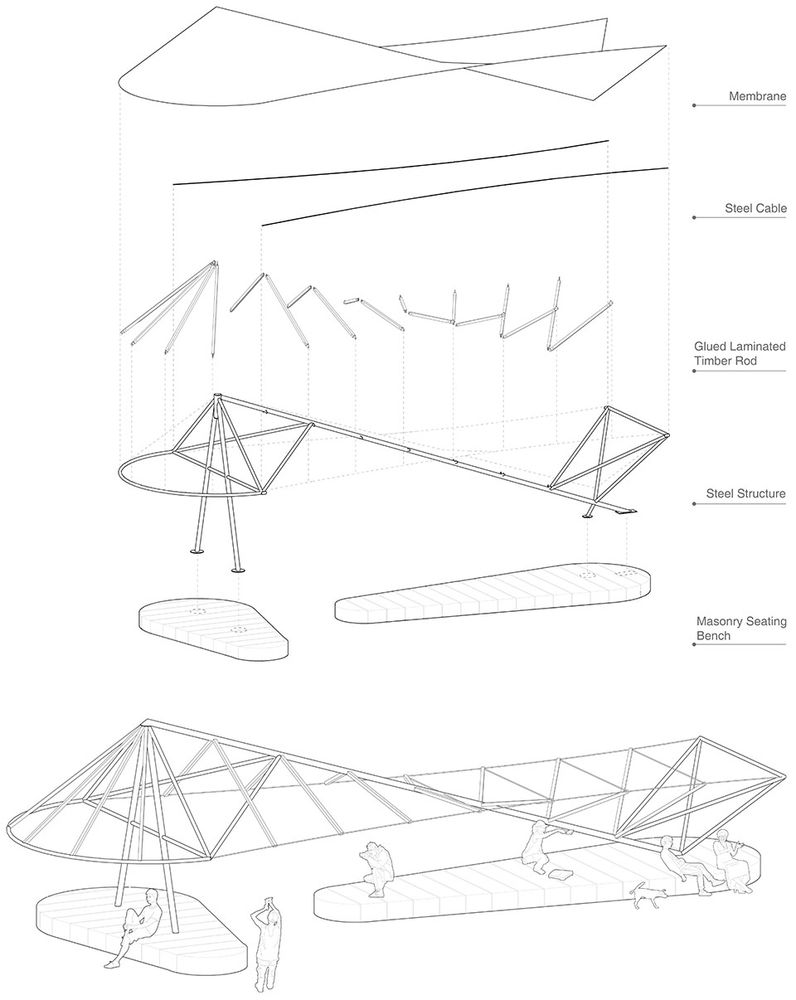
The form formed by external relations and physical perception is implemented by grinding with the structure, and the hybrid structure of steel, wood, and membrane are jointly stressed to achieve a simple result. The roof consists of a membrane, side cables, and wooden braces, which are protected against strong winds on the riverside by an elastic tensioning system. Herringbone bracing and central diagonal bracing are the main supporting structures, forming three drop points. The semi-conical overhangs and triangular trusses form the rigid supports at the ends of the roof structure, which are painted white to fade into the roof. The end of the volume falls on top of the seating bench in the form of a point joint, triggering the illusion of perceived lightness and instability.
▼屋顶结构,roof structure
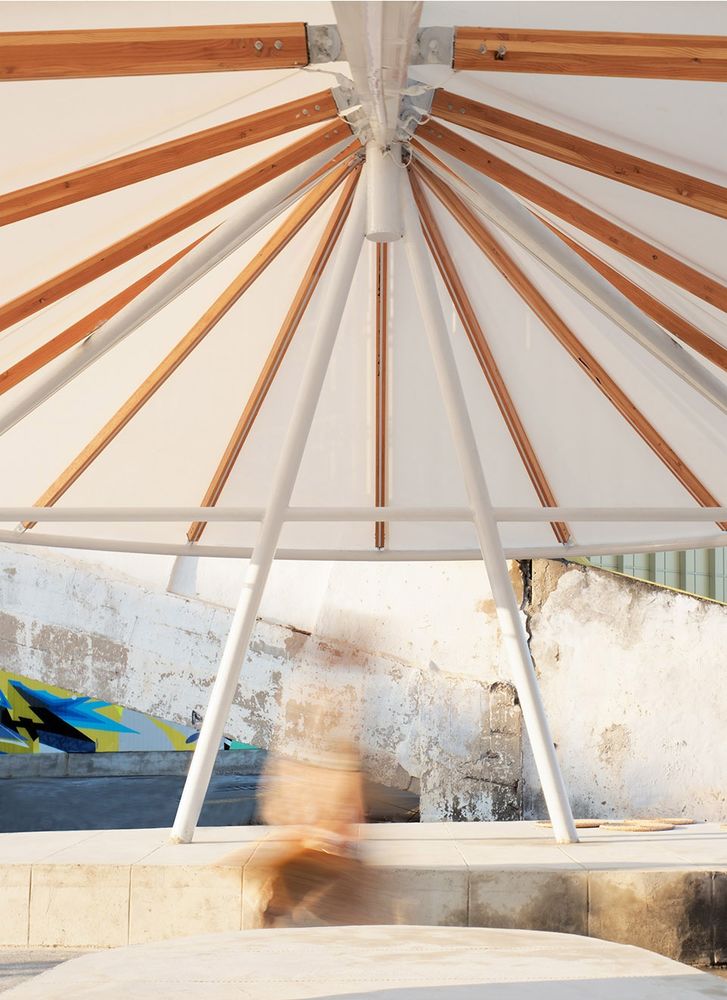

▼节点细部,details of the joints
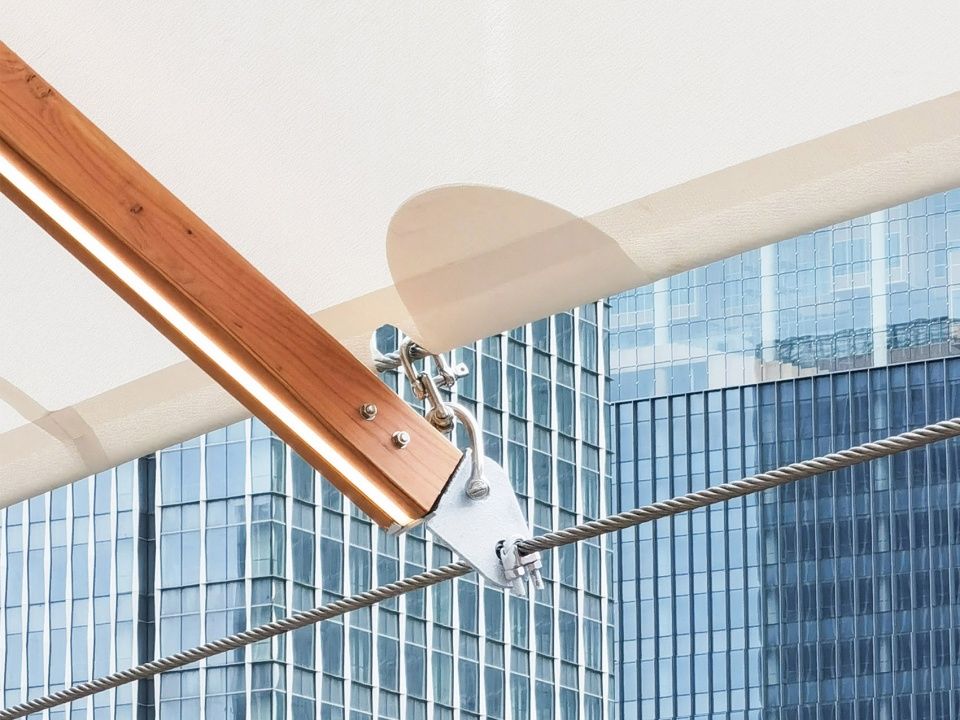
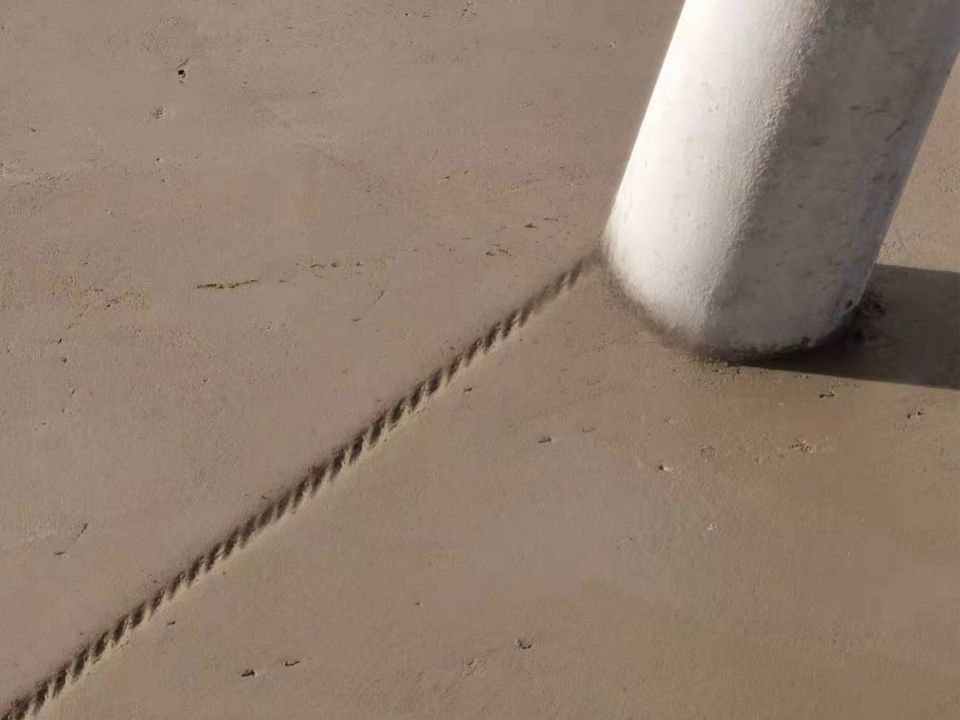
构件的重复性和节点的简易化是纸鸢亭得以在6天内(2021年7月10至15日)快速建成的基础。纸鸢亭主体结构构件可以拆解为三种类型:圆钢管(现场相贯焊接)、胶合木杆(工厂预制+现场与钢管焊接与钢索拉结)、钢索(现场拉结)。钢索拉紧是主体结构建造的最后一步,索的柔性的很好的消化了钢管和木杆的施工误差。设计有意安排建构节点的隐藏与凸显,形体长边有两道索,膜索穿越耳板靠上方的洞口,被包裹在膜中固定其边缘形态。边索通过连接木杆端头的耳板来固定木杆并拉结整体结构,它与膜的间隙使得边索外露,从而满足施工方便的同时获得了形态边缘的细部。
▼施工过程,construction process
The repetitiveness of the components and the simplicity of the joint detail were the foundamental reason for the rapid construction of the Kite Pavilion in six days. The main structure of the kite pavilion can be divided into three types: round steel pipes, glued wooden poles, and steel cables. Tensioning the steel cables was the final step in the construction of the main structure, and the flexibility of the cables absorbed the construction errors of the steel and wood poles. The design intentionally arranges the concealment and protrusion of the construction nodes, with two cables on the long side of the volume. The membrane cable crosses the hole in the ear plate against the top and is wrapped in the membrane to fix its edge form. The side cords are connected to the end of the wooden pole by the ear plate to fix the pole and tie the whole structure, and the gap between it and the membrane makes the side cords exposed, thus increasing the slimness and lightness of the edge of the form.
▼项目位置,site plan
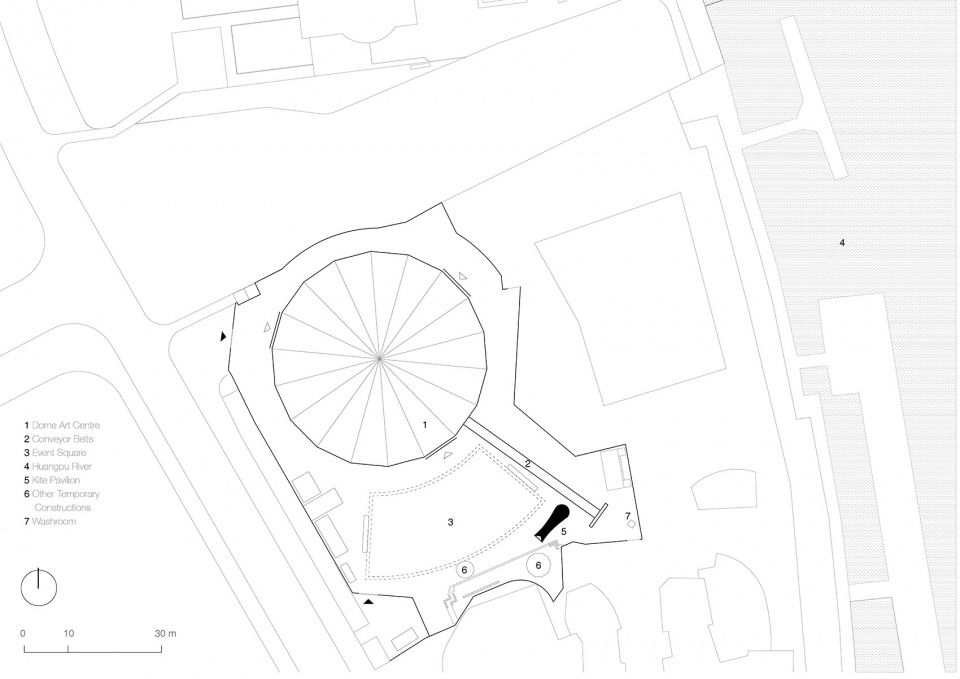
▼地面层平面图,ground plan
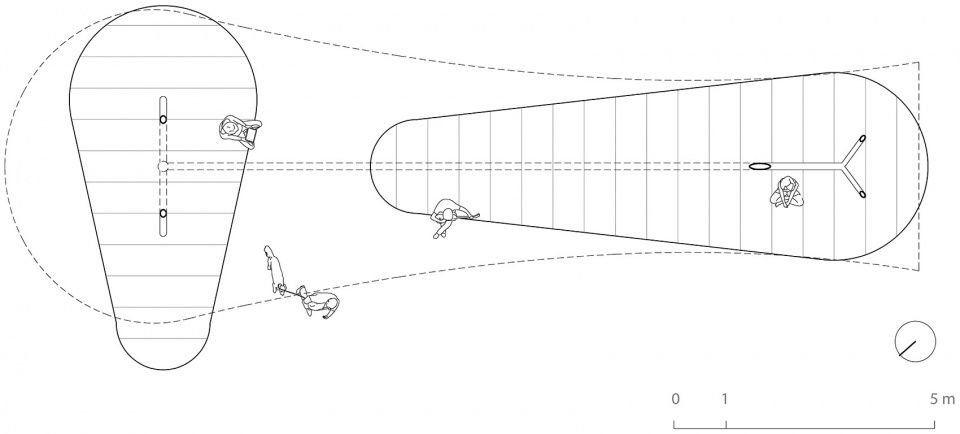
结构平面图,structure plan
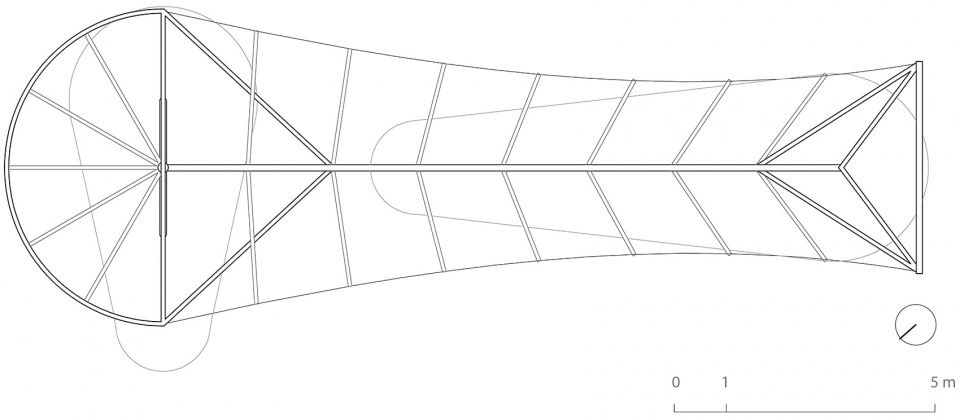
▼屋顶平面图,roof plan
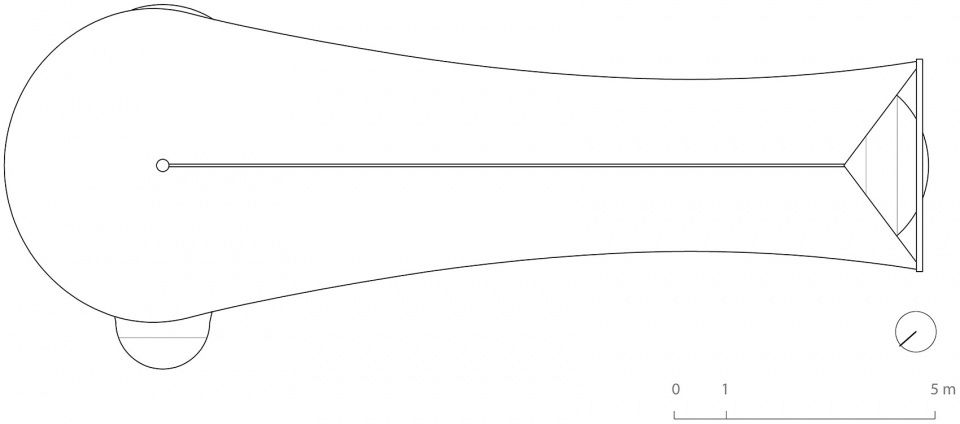
立面图,elevations


▼剖面图,section

▼细部,details
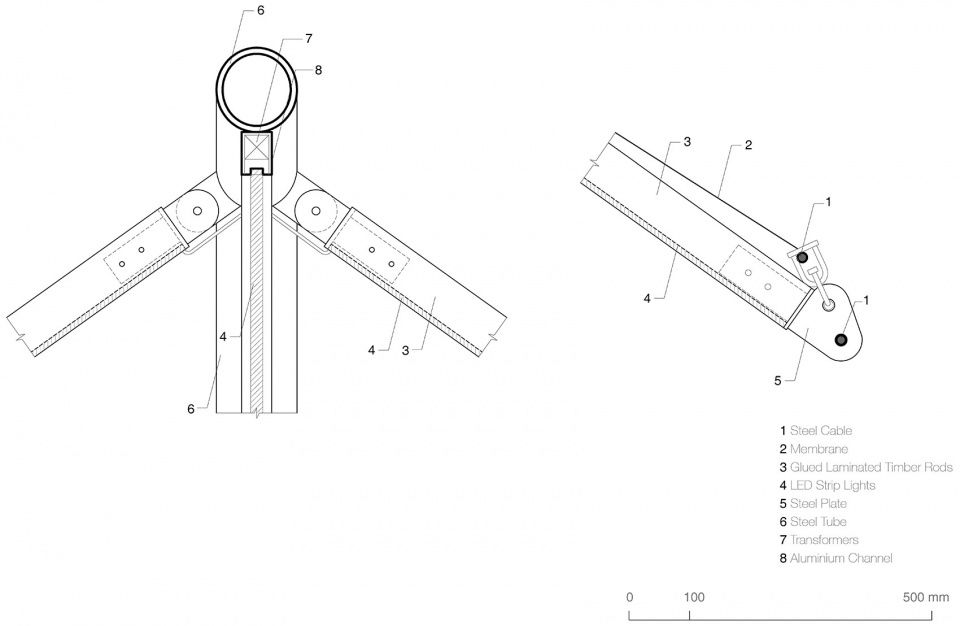
项目名称:纸鸢亭
设计方:王梓童(同济大学建筑与城市规划学院)项目设计&完成年份:2021年&2021年
主创:王梓童
项目地址:中国上海市徐汇区龙腾大道2350号,西岸穹顶艺术中心
建筑面积:85㎡
摄影版权:析幺、王梓童、张宇宙、王昕鑫、郭力娜、董晓、郭小溪、肖琦凡
设计指导:张婷
结构设计:iStructure
策划指导:李翔宁
策划执行:展/城工作室
施工方:济木建筑科技工程(上海)有限公司
客户:上海西岸开发(集团) 有限公司
膜材料:Serge Ferrari
Project Name: Kite Pavilion
Design: WANG Zitong(TONGJI UNIVERSITY COLLEGE OF ARCHITECTURE & URBAN PLANNING)Design & Completion Year: 2021 & 2021
Leader Designer: WANG Zitong
Project Location: 2350 Longteng Avenue, Xuhui District, Shanghai, China
Gross Built Area: 85 ㎡
Photo Credits: Xiao, WANG Zitong, ZHANG Yuzhou, WANG Xinxin, GUO Lina, DONG Xiao, GUO Xiaoxi, XIAO Qifan
Instructor: ZHANG Ting
Structural Design: iStructure
Curatorial Director: Li Xiangning
Curatorial Execution: Curate the City
Constructor: JIMU Building Tech and Engineering
Clients: Shanghai West Bund
Membrane: Serge Ferrari

